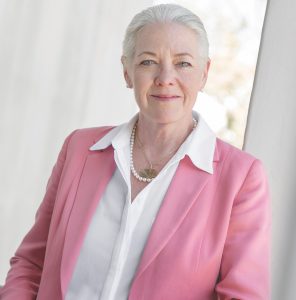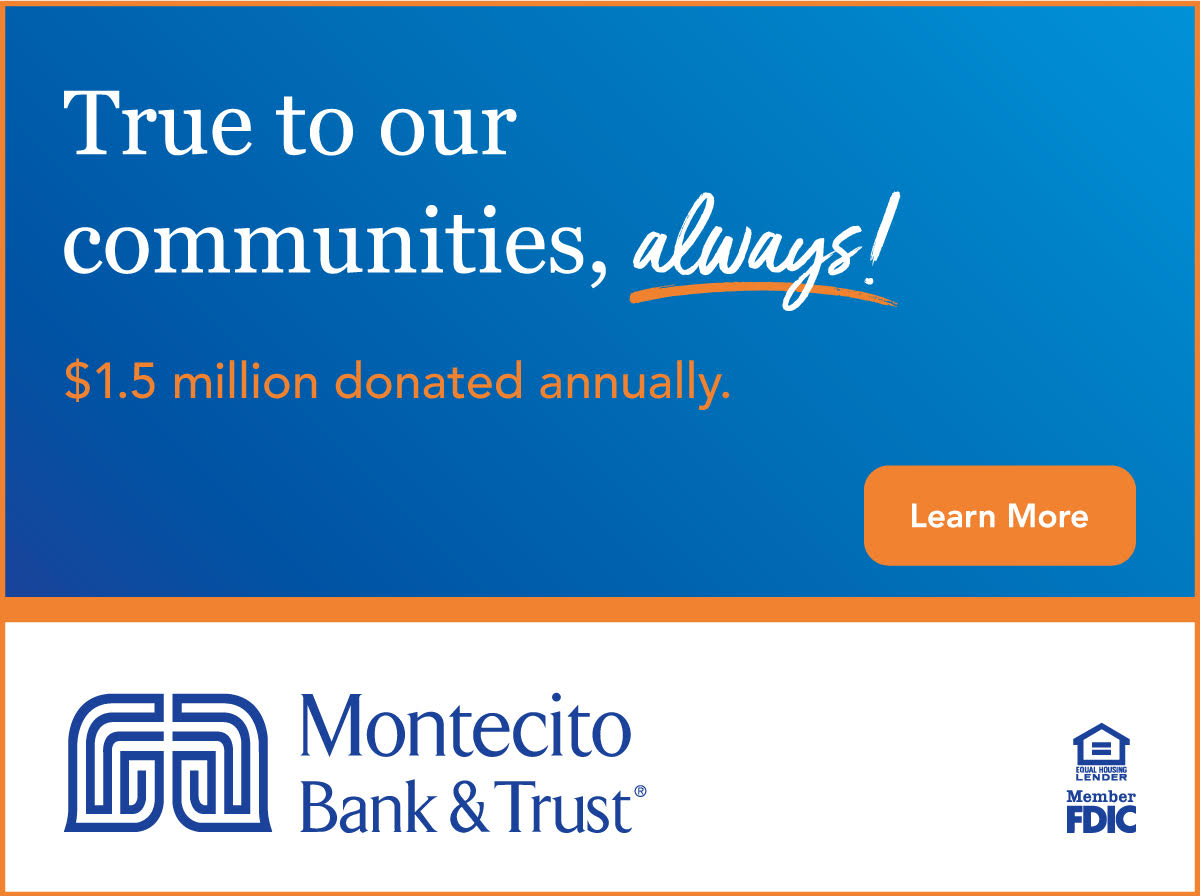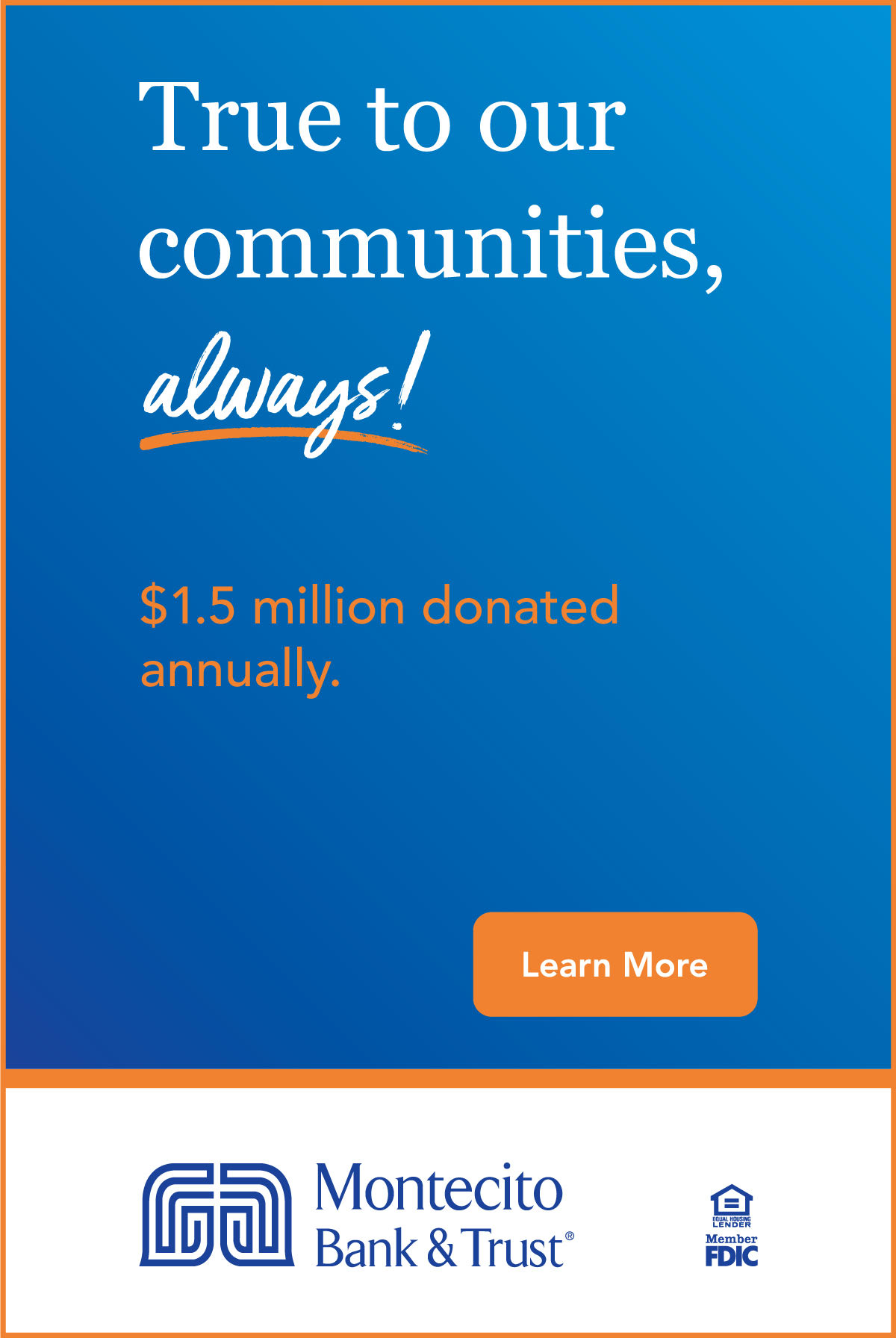Kenny Slaught: Building a Legacy of Compassion
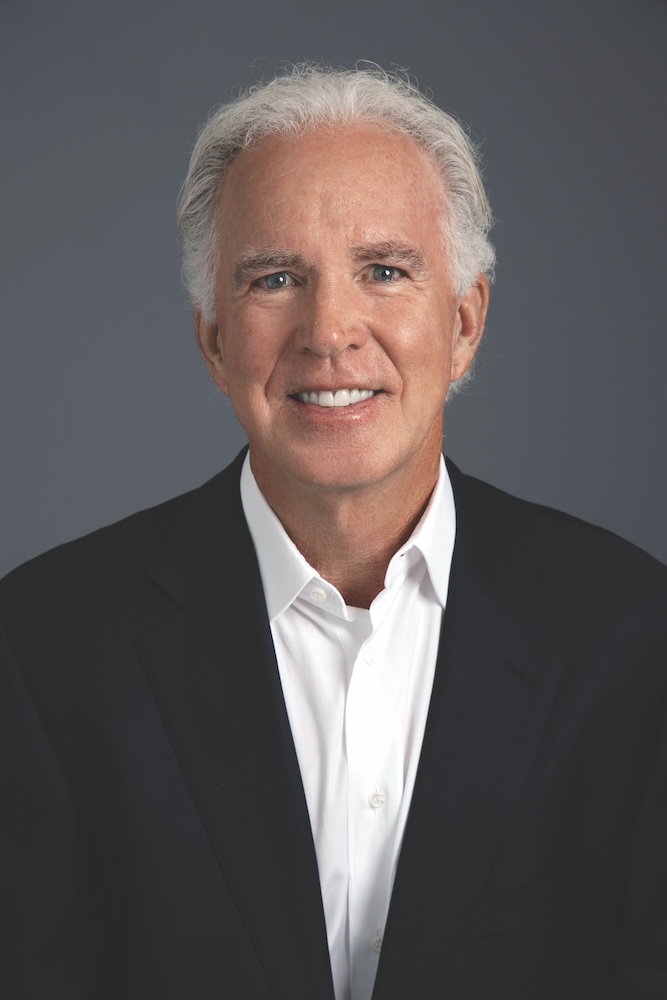
Kenny Slaught boasts more than four decades of professional experience in Santa Barbara’s real estate industry. The founder and president of Investec, which now employs 40 people, Slaught and his company oversee a $1 billion-plus portfolio in real estate assets and manage more than three million square feet of retail, office, and self-storage properties. He also continues to direct investment strategy, policies, and business development for the company. Over the years, Investec has grown into one of Santa Barbara’s leading comprehensive real estate firms whose holdings stretch from San Luis Obispo County to San Diego.
Slaught, who studied at St. Philip and La Salle High School in Pasadena before enrolling at UCSB on an athletic scholarship, majored in business and economics, earning both his diploma and California Real Estate Broker License in 1979. Slaught later added a California Contractors State License to his credits to further integrate the business.
Beyond business, Slaught is heavily involved in the Santa Barbara community through working with and supporting a variety of nonprofit groups, educational institutions and other charities. In support of his alma mater, he has served on the UCSB Foundation Board of Trustees since 1996. He’s been an officer and member of the board of directors of the Storyteller Children’s Center for 35 years, heavily supporting the nonprofit that provides free early childhood education to homeless, disadvantaged, and at-risk youth in Santa Barbara. He has also been a member of the national board of directors of Dream Foundation, a Santa Barbara-based charity that fulfills wishes for adults with terminal illnesses, and previously served on the board of directors for Hospice of Santa Barbara, which provides a range of compassionate services for individuals approaching the end of life.
Slaught has also contributed to several other nonprofits, including the Santa Barbara Bowl Foundation, Music Academy, Santa Barbara Zoo, Santa Barbara Museum of Art, Lotusland, Scholarship Foundation of Santa Barbara, CADA Mentor Program, and the Santa Barbara Foresters, as well as four local high schools.
Q: Can you share about your early years, what growing up was like, perhaps in relation to what you ended up doing?
Kenny Slaught: I grew up in Pasadena, California. I was one of eight children, seven boys and one girl, all born within 10 years. I went to Catholic school for my first 12 years. I was a choir boy and an altar boy, and my dad was a proctor. I did that whole Catholic thing. I had a great childhood. My parents were awesome. It was a happy, active upbringing. I’d say the way it really influenced who I am is that it did create a fair amount of compassion because the church is all about everybody being equal, and helping the poor and those in need.
Q: How did you end up at UCSB for college?
A: I was a basketball player in high school, and I got recruited to play at UCSB. I’d never been here before, and when I came up to visit it was, “Oh my God, this is incredible!” They showed me a dorm that looked out at Goleta Beach and said, “This is where you’re going to live and we’re going to pay your tuition.” It was like being on vacation. I didn’t take long to accept.
I was the second oldest kid in my family but the first to go to college. I just loaded up my Volkswagen Bug and drove to Santa Barbara. It was almost 50 years ago, but I still remember that I got pulled over for a speeding ticket on the 101. I didn’t even know a Volkswagen Bug could break the speed limit. I get out my wallet to show it to the cop, and I swear half of the money that I had saved all summer blew out and all over the freeway. The woman CHP officer just looks at me and shakes her head. I thought she’d have a little sympathy, but she still wrote me the ticket.
Q: Four years later, you got your real estate broker’s license the same year you graduated. It seems like you already knew that’s what you wanted to do for a career.
A: All I wanted to do was stay in Santa Barbara. What happened was there was a booster for the basketball team who would come to all the games and have the team over for dinner, and buy us gifts like TVs. He ran a little real estate investment company in Isla Vista, and he put together partnerships and bought small apartment buildings, and then managed them. When I was a sophomore, he suggested I come work for him so I could make enough money to be able to live here. He’d show me how to do it, and how one deal’s commission could pay for a year. By my senior year, I went to work for his company full time, got my broker’s license. I was pretty motivated.
Q: Can you share about the early days of Investec?
A: What drove my business strategy was my children, because we had our first child just two years in, and another in 1988. I wanted to be near my family, not out on the road. I’ve always loved kids. Even as a teenager, I did nothing but babysit my siblings, and for some reason I just loved it, whatever we were doing. So I decided not to buy or invest in anything that was more than a gas tank away from Santa Barbara, up and down the 101. That way I could be home every night. From there, I just started doing deals, and I was intensely determined to be successful. I found that if you’re honest with everybody and you do a good job, they come back. Now, 40 years later, I’m doing the same thing, just looking for opportunities.
Q: I’m imagining it was helping kids that got you involved with Storyteller.
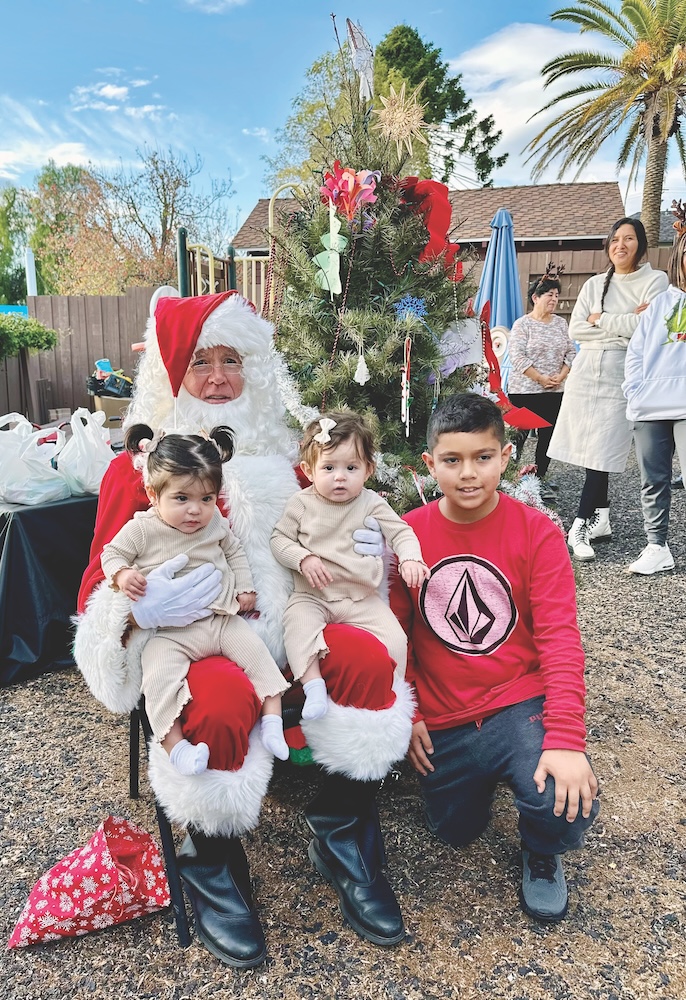
A: Yes. In 1988, I saw an ad in the Independent that volunteers were wanted to show up on the corner of Santa Barbara and Ortega streets, just three blocks from my office, in the mornings to help move playground equipment out of the homeless shelter into the parking lot, and then come back in the afternoon again to put it away. I went down there and saw all these three-year-old kids running around out there all day with no moms on-site, because they had to be out looking for a job.
That was the lightbulb, blow-me-away moment. I had a three-year-old at home who had everything he needed. It had never occurred to me that there were homeless kids in Santa Barbara. So three of us [volunteers] got together and decided to get these kids out of the shelter because it wasn’t safe. We rented a place down by the train station and we hired a teacher, and the kids would get dropped off in the morning. That’s how Storyteller preschool started. It was just this visceral shock in my brain that there were kids the same age as mine who were sleeping on the floor of the shelter. It got to me, and it still has me, 35 years later.
Q: You’ve been with Dream Foundation for a long time, too, the opposite end of the age spectrum in a sense. What was the connection for you?
A: It’s actually a terrible story. My wife got breast cancer at 32. She went through the whole treatment – chemo, radiation, mastectomy, and they told her she wouldn’t be able to have any more children. She gets through it and about nine months later, she discovers she’s pregnant. At first there was no reason to abort because the doctor said the estrogen wasn’t feeding the cancer, and we decided to not even check again. She gave birth, we find out her cancer has come back and seven weeks later she’s dead.
With the loss of my wife, I got involved in the early stages of a formation of an organization to grant final dreams to dying adults. There wasn’t anything for people over 18. We had the first three or four fundraisers for the Dream Foundation at my house to get it going, and I’m still involved 28 years later. It has a lot of meaning for me.
Q: I believe you’re also on the board of the UCSB Foundation.
A: I was. Obviously, I went there, and when they asked me to join, I said sure. That was 25 years ago. I know exactly because just a few weeks ago they told me that they had to kick me off because they have a 25-year term limit. Otherwise I’d still be there.
Q: It’s amazing that you’ve stayed involved with all three for decades, and haven’t left any on your own.
A: Well, I’m very tenacious, just like I am in business. When you help something be born, like Storyteller and Dream Foundation, I just don’t know how you walk away. I’m not the type who wants to go try other things. I’ll be part of Storyteller for life.
Q: Clearly, you also believe in the importance of what might be called small contributions in philanthropy, such as volunteering time and talent as well as financial support.
A: Yes. I can’t just write checks and not do anything else. That doesn’t fill me at all. I need to be involved. I don’t volunteer at Storyteller anymore, but now I’m on the facilities committee, and it’s the most fun I’ve had because not only do I get to be onsite seeing the kids and talking with the teachers, I also get to do my real estate thing, fixing up the properties. That hits all my buttons.
Q: What do you do to encourage philanthropy among your employees?
A: At Investec, we have employee giving. I don’t twist anybody’s arms, but they see that I’m super involved and even if they do $25 or $50 a month, it makes a difference. I’ve made it part of Investec’s mission to support those organizations… And I’ve watched my kids, one in particular, who’s joined a couple of nonprofit boards and is doing his own philanthropy different from mine. It’s great to see.
Q: As a business leader who has employed innovation and tenacity to be successful, how do you think those qualities show up in the nonprofit world?
A: Nonprofits definitely have to be tenacious because you have to be fundraising all the time. You have to go after every grant and every potential client. Other than a few lucky nonprofits in town that have received huge windfalls when people passed away, most don’t have endowments, so pretty much everybody else is fighting to make next year’s budget. It’s a battle all the time. Sometimes, you end up spending more time raising money than you do on the mission you fell in love with. That’s challenging.
Q: Do you have any final thoughts on wealth, opportunity, and giving back?
A: It’s my feeling that as you become more affluent, and you’ve set aside enough for your kids without wrecking them, that obviously you can’t take it with you. You don’t want to be the richest guy in the cemetery. So I don’t understand people who don’t have in their DNA any type of philanthropy. You can’t force it on anyone, but it’s almost invariably true that when people are philanthropic, the feeling they get is intoxicating, which only breeds more philanthropy. For me, the hardest thing was making the first million in the business, and the best was eventually giving it away. So I encourage everyone to at least try it at least once.
